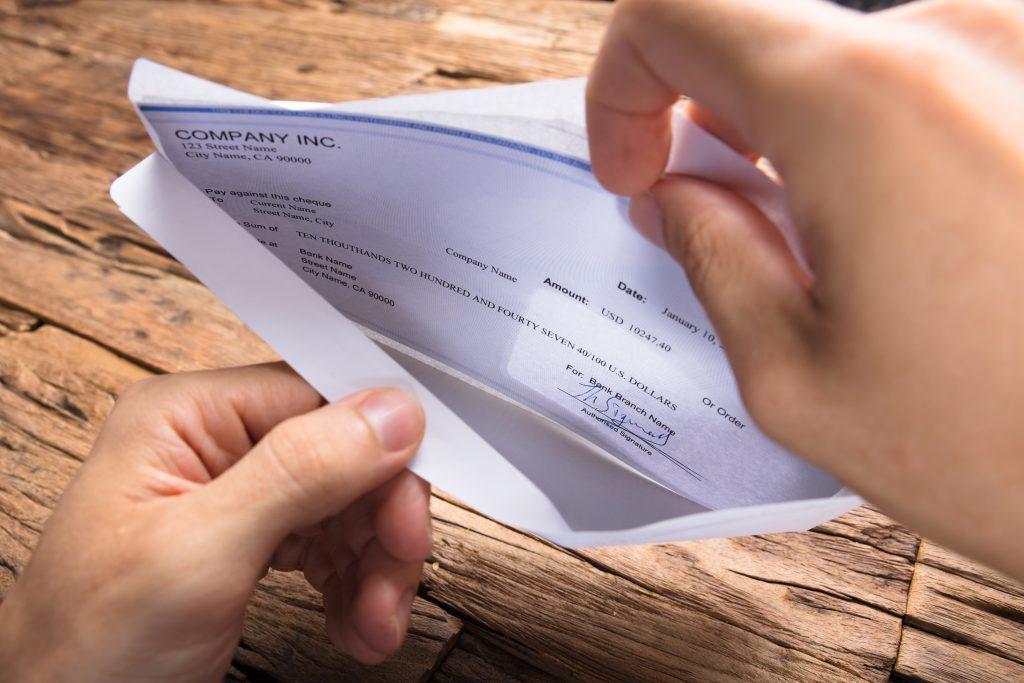Sometimes, you need to make a payment for an item or service, and you can’t use a personal check, credit card, debit card, or digital payment platform. What do you do then? This actually isn’t an uncommon scenario if your transaction involves an exceptionally large purchase, or you’re in a situation where the payee needs certain guarantees. In these cases, there are other ways to pay, and one of the most trusted of all is a cashier’s check.
What is a Cashier’s Check?
A cashier’s check is a check that is paid directly out of the bank’s funds rather than your bank account. It gets the name because a cashier has to sign the check. It’s treated as a guaranteed payment because bank funds are typically more reliable than personal funds. So a cashier’s check can be a great payment option if a guarantee matters.
How Do Cashier’s Checks Work?
The process is pretty simple. First, you request the check from your bank or another financial institution. They will take the funds from you for the total check amount, plus a fee in some cases, typically through an automatic transfer. Once the funds clear, they will issue the check.
When the person you’re paying deposits the check, the funds are paid from the bank’s account. Therefore, your accounts are no longer involved. Wondering – how long are cashier’s checks valid? Theoretically, they should be valid as long as the issuing financial institution is still in business. Some banks, though, will print an expiration date on checks.
Do You Need a Cashier’s Check?
Cashier’s checks might be preferable for substantial purchases. For example, if you have money saved up and want to buy a car without a loan, you would probably use a cashier’s check. It can be ideal when a large amount of money is involved, and it provides the levels of security that car dealerships would need in order to process the sale.
Similar large purchases could include a house, luxury items, and anything that costs too much to just write a standard personal check for.
Cashier’s Checks Alternatives
If you’re wondering – is a cashier’s check safe? – rest assured, the answer is yes. But if you’re concerned, in place of a cashier’s check, you can also consider money orders or wire transfers. They typically have lower fees, but there are some additional limitations in place.
- Money Orders – A money order is an alternative form of guaranteed payment. With this, you can go to a bank or other institution and provide the amount for the money order (plus a typical small fee). The money order is then printed and acts like a prepaid check. The significant differences between a money order and a cashier’s check are the amounts allowed (usually capped at $500), the security measures in place, and how the institutions pay out the charge or check. Cashier’s checks are more secure, trusted, and can be made out for higher dollar amounts.
- Wire Transfers – A wire transfer is an electronic deposit that sends money directly from your bank to whomever you are paying. Wire transfers come with fees and limits, and they cannot be recalled after delivery. Because of this, cashier’s checks come with greater certainty and can often process more money in a single transaction.
Pros of Cashier’s Checks
While they’re not always ideal, there are times when a cashier’s check is necessary. The pros primarily stem from three standard advantages of using a cashier’s check:
- Payment Guaranteed – Using a cashier’s check guarantees funds. This can seal some deals when the recipient might be worried about trusting your form of payment.
- Availability of Funds – Theoretically, the bank already has sufficient funds available for the check, so it can clear quickly when deposited. This will depend on the bank and the amount covered by the check, but on average, cashier’s checks clear faster than personal checks.
- Transaction History – Cashier’s checks include extra formal steps to create and deposit. This creates a stronger-than-average paper trail that can be important after the transaction.
Cons of Cashier’s Checks
As helpful as cashier’s checks can be, they’re not always the best option. They have some drawbacks that you should consider before going this route.
- Easily Counterfeited – Do you know how to spot a counterfeit cashier’s check? Probably not, which is part of the problem. Cashier’s checks are easily counterfeited because most people aren’t familiar with them.
- Extra Costs – In most cases, you have to pay a fee for a cashier’s check, which is often based on the amount guaranteed. That can add considerable costs to this form of payment.
- Funds Received Too Quickly – If you receive funds to your account and send them away to a cashier’s check very quickly, this triggers automatic flags. This technique has been used for money laundering and other crimes, so banks today have security measures that can complicate any rapid cash turnaround involving a cashier’s check.
How to Get a Cashier’s Check
Any financial institution can issue a cashier’s check. Go to your local credit union or bank or use online tools like a website or app. Request the check and the institution will walk you through the rest.
Many people are curious to learn the answer to the question: what is the maximum amount for a cashier’s check? As long as you have the funds to cover the check, there shouldn’t be a limit!
Cashier’s Checks from HFS FCU
If you need a cashier’s check, HFS FCU has you covered. We can efficiently process cashier’s checks with minimal relative fees. In fact, as a benefit of membership, the first five (5) checks per month are free of charge! Contact us today, and we’ll explain the whole process. And, if you don’t need a cashier’s check, we have plenty of options for personal checks too.

